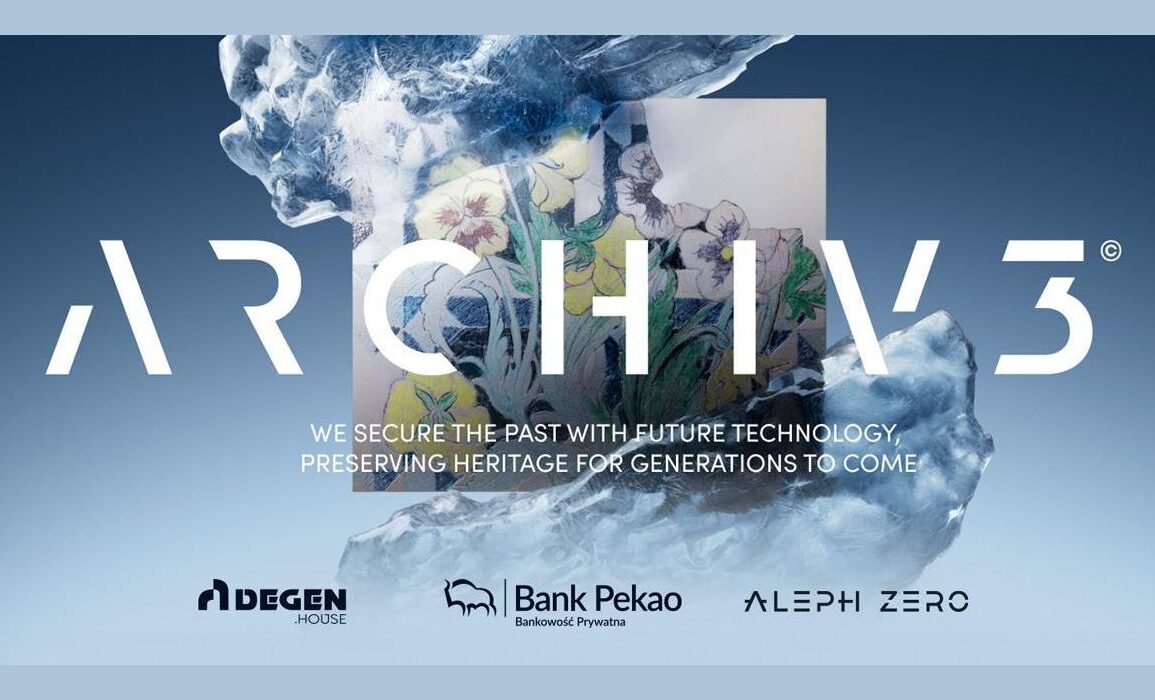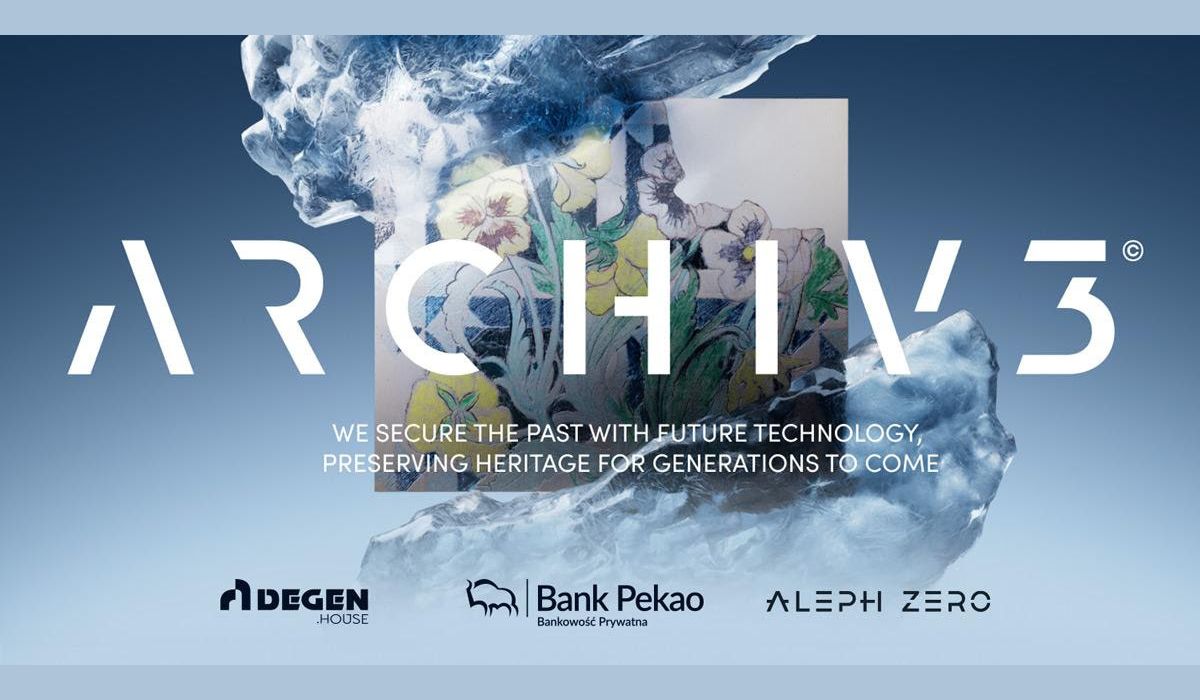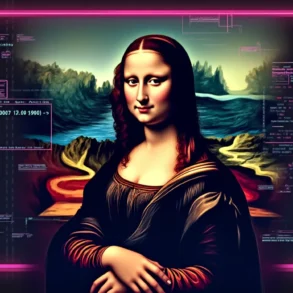Pekao S.A, the second largest bank in Poland, is proud to launch the Archiv3 project on the Aleph Zero blockchain, which aims to tokenize and preserve Polish cultural heritage.
Archiv3 was launched in partnership with Aleph Zero, a layer 1 blockchain platform known for its speed, data confidentiality, and ease of development, and Degen House. Archiv3 will use the Aleph Zero blockchain to tokenize and preserve Polish cultural heritage with digital reproductions securely stored in the Arctic World Archive (AWA), also known as the “Doomsday Library.” Bank Pekao hopes this initiative will go a long way in ensuring the masterpieces are secured for their cultural significance and to serve as resources for future study.
Archiv3 will meticulously digitize masterpieces from iconic Polish artists such as Wojciech Kossak, Jan Matejko, Stanisław Wyspiański, and others. The artwork collection features a range of historical periods, particularly works from the 19th century. It also features a selection of modern pieces, such as works by contemporary artist Lia Kimura. Degen House, which currently serves as the bank’s technological partner and manages the Aleph Zero integration, will facilitate these pieces.
According to the term behind the project, the process began with creating high-quality museum-grade 3D scans using ultra-sensitive cameras. These cameras are designed to capture every detail of the original artwork for reproduction. Once reproduced, the digital replicas were minted as NFTs on the Aleph Zero blockchain and archived on the Arctic World Archive. These digital replicas will securely remain on the AWA for at least 1000 years.
Notably, through the Archiv3 project, Bank Pekao became the first universal bank to preserve and tokenize historical art. The project is part of the bank’s ongoing commitment to modernize its services and expand its reach within the digital market.
Commenting on the launch, Michał Walęczak, Director of the Private Banking Strategy and Development Department at Bank Pekao S.A stated:
“We have chosen Aleph Zero for their privacy-focused, top-class technology combined with sound experience in cooperation with large institutions. Minimal carbon footprint as well as low storage costs were also important factors in our decision-making process. Tokenization of art requires modern and flexible technology, unforced creativity, and some out-of-the-box thinking; these features we were happy to find in co-operation with Aleph Zero.”
The Artic World Archive is a highly secure data vault created in 2017 to protect invaluable culture, scientific information, and historical resources. Located on the remote Svalbard archipelago, it is designed to store data for long periods without the need for human or electric intervention. The valuable data stored include the Vatican Library, the entire GitHub code repository, documentation from UNICEF and UNESCO, and literary works by Nobel Prize laureates Wislawa Szymborska and Olga Tokarczuk.
This post was originally published on this site be sure to check out more of their content










